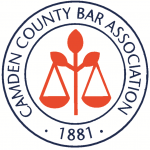For an Employee Injured at Work: Two Paths in New Jersey for Workers’ Compensation
In New Jersey, an employee injured at work should first and foremost tell an employer about the accident, incident or illness. Employers in New Jersey are required to have workers’ compensation insurance that reimburses an employee’s medical expenses and pays benefits after an injury. Once an employer knows about your injury, it has a responsibility to start the claims process with the insurance provider.
In most cases, the employer makes the appropriate phone calls to the insurance company and files the correct paperwork. The average employee injured at work in New Jersey encounters very few problems receiving workers’ compensation benefits. In these uncontested situations, an employee may ask initial questions of an attorney regarding what to tell an insurance provider, how to complete required paperwork, and what to expect throughout the process.
Employee Injured at Work & Pushback on Workers’ Compensation

Other employees receive deferment, delay and denial from their employer or the insurance provider. An employer may argue that the accident occurred outside of work or was the result of recreational activities. Some situations, such as repetitive motion injuries and cumulative trauma are harder for an employee to prove, and an insurance company may inappropriately pushback on these claims.
When an employee injured at work receives pushback or denial of a workers’ compensation claim, the New Jersey Workers’ Compensation Law provides separate paths for employees to obtain appropriate and entitled benefits.
Filing for an Informal Hearing
An employer injured at work can file with the New Jersey Department of Labor in the Division of Workers’ Compensation to request an informal hearing. This informal hearing is still a legal process, and the employee can benefit greatly from involving a knowledgeable workers’ compensation attorney in the process. If an employee is requesting complicated benefits, such as determination of permanent or total disability, the advice of a NJ worker’ compensation attorney is recommended by the Department of Labor.
However, the procedures and requirements of an informal hearing are often less complicated and less expensive than a filing and settling a formal claim. At an informal hearing an employee can request a specific amount of compensation for medical expenses and benefits, both temporary and permanent disability benefits, and provide evidence that a disability is either partial or total. An employer or insurance company can provide alternative or contradictory arguments.
Afterwards, a judge in the Division of Workers’ Compensation provides advice. This advice isn’t binding on the parties. Either party may require a subsequent hearing or directly reject the proposals from the judge, but most New Jersey workers’ compensation cases are settled after one or two informal hearings.
Application for a Formal Claim

A formal claim with the New Jersey Division of Workers’ Compensation is more akin to litigation or a court case. An employee injured at work must file the application for a formal hearing within two years of the accident injury or two years from when the employee had actual knowledge of the injury. This is called the statute of limitations.
After a formal claim is filed, the employee and employer still have an opportunity to reach agreement on workers’ compensation benefits. Before signing a settlement agreement, an employee should also consult an attorney to review and advise on the terms. Insurance companies and employers have very different interests, and often very savvy lawyers, involved in this process, and you want to ensure your own interests are protected. If a settlement is reached, the judge will approve it, and the terms become final. This is how most workers’ compensation cases are resolved.
Without a settlement, the parties will appear before a judge in the Division of Workers’ Compensation and present arguments and evidence. The judge then makes a determination based on the evidence, and this determination is binding on the parties. While a formal claim is typically heard within six months of filing, this formal process in New Jersey is usually longer and more involved than that for an informal hearing.
Obtain Your Entitled Benefits
After a workplace injury or illness, you don’t want to leave medical expenses unpaid and benefits undeceived. To be certain you obtain the compensation and benefits entitled under New Jersey law, discuss your case with a NJ worker’s compensation attorney. You can speak with an experienced lawyer today by contacting the Law Offices of Albert J. Talone on our website or calling (856)-234-4023.
The information in this blog post (“Post”) is provided for general informational purposes only. This information may not reflect the current law in your jurisdiction. No information contained in this Post should be construed as legal advice from The Law Office of Albert J. Talone or the individual author, nor is it intended to be a substitute for legal counsel on any subject matter.



